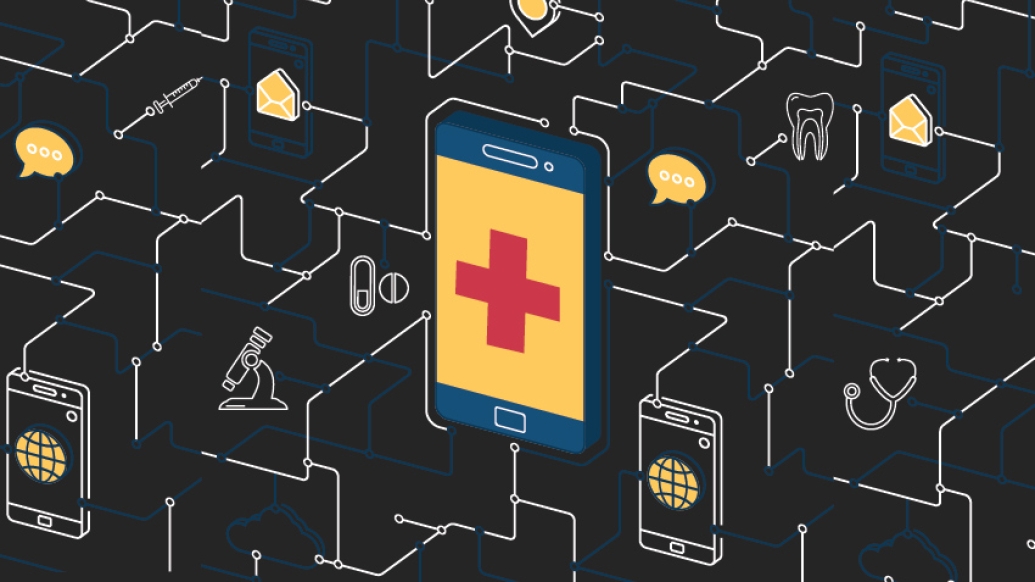Plenty of websites promise to help people with health issues — but many lack gold-standard testing or public access. Research highlights the right resources for those in need.
9:00 AM
Author |

The internet teems with self-help sites that promise to help people improve their health. But which of these outlets have been evaluated through gold-standard studies and have evidence to support their claims?
MORE FROM MICHIGAN: Subscribe to our weekly newsletter
A new paper compiles only the best of the best: a list of more than 40 sites backed by evidence from randomized controlled trials.
Compiled by a team at the University of Michigan Medical School, the list includes sites that offer people help with reducing their use of alcohol, tobacco and marijuana; managing mental health issues; and improving diet and physical activity. Other topics include insomnia, chronic pain, cardiovascular risk and childhood health issues.
Published in the Journal of Medical Internet Research, the list highlights sites that go beyond educational information to help people understand, and approach, a condition.
The web-based programs typically are structured like courses, with stepwise, interactive modules based on psychological principles and offline assignments. Some programs take weeks or months to complete. Several sites are free to the general public; others charge a fee.
"This list is just a start," says Mary Rogers, Ph.D., a research associate professor at U-M and a member of the U-M Institute for Healthcare Policy and Innovation. "New trials are completed on an ongoing basis, so we suspect that there will be additional websites with effective interventions added to this list over time. It is important that procedures are in place so that people know where to find health information that is backed up by science."
Still, the search can be challenging: Rogers and her colleagues found that nearly 80 percent of effective online approaches to health-related self-help, shown to work in randomized controlled trials, aren't currently available or have since been taken down.
The researchers hope that their work will help not only the general public in search of answers but also clinicians who want to steer their patients toward evidence-based online tools to help them between clinic visits.
If there is an internet program that can help someone improve their health and there's little extra cost involved in maintaining it, we should provide more avenues to keep these sites available.Mary Rogers, Ph.D.
About the study
The investigators started by doing a massive search for research papers in any language, and from any health field, that compiled the evidence from randomized controlled trials for online self-help approaches. They found 71 such papers, called meta-analyses, which looked at the results from 1,733 studies.
SEE ALSO: Can a Website Keep Suicidal Thoughts Away?
But through this review, the researchers found that only 21 percent of the online programs had a functioning website after the study was finished.
Rogers and her colleagues note that the end of a grant to support a trial of an online program also often signals the end of a research team's efforts to provide it. After the trial, then, ongoing support for web hosting and technical upgrades may not be available. The authors call for efforts to continue hosting such sites after the trials are completed.
Many of the websites provide precautionary information to seek professional medical attention for health questions. Some sites also provide resources for health professionals.
For example, painACTION, which was created using funds from the National Institutes of Health, offers resources for both patients and physicians to help patients manage chronic pain. For every four people with chronic back pain who used the online program, one person experienced improvement compared with a control group. For every three people with migraines who used the site, one person experienced improvement compared with a control.
Although the sites on their list have evidence behind them, this does not guarantee a benefit for every individual who uses a given site, Rogers and her colleagues note. Compared with people who don't use the site, though, they do offer a greater likelihood of a benefit if the program is completed.
Most of the effective online health programs are available in English. But some are available in Spanish, French, Portuguese, Dutch, German, Norwegian, Finnish, Swedish or Mandarin Chinese.
With 3.5 billion internet users worldwide, future research is necessary to determine whether online programs work equally well for people with different social and cultural backgrounds.
Also necessary is a shared effort to keep the information live and accessible.
Notes Rogers: "If there is an internet program that can help someone improve their health and there's little extra cost involved in maintaining it, we should provide more avenues to keep these sites available. It could represent potentially great cost effectiveness globally. In addition, we have to do a better job of letting people know that there are evidence-based sites to help them."
Website locations for the effective self-help programs are listed online (PDF).
In addition to Rogers, the research team includes Kelsey Lemmen, Rachel Kramer, Jason Mann and Vineet Chopra, M.D.

Explore a variety of health care news & stories by visiting the Health Lab home page for more articles.

Department of Communication at Michigan Medicine
Want top health & research news weekly? Sign up for Health Lab’s newsletters today!





